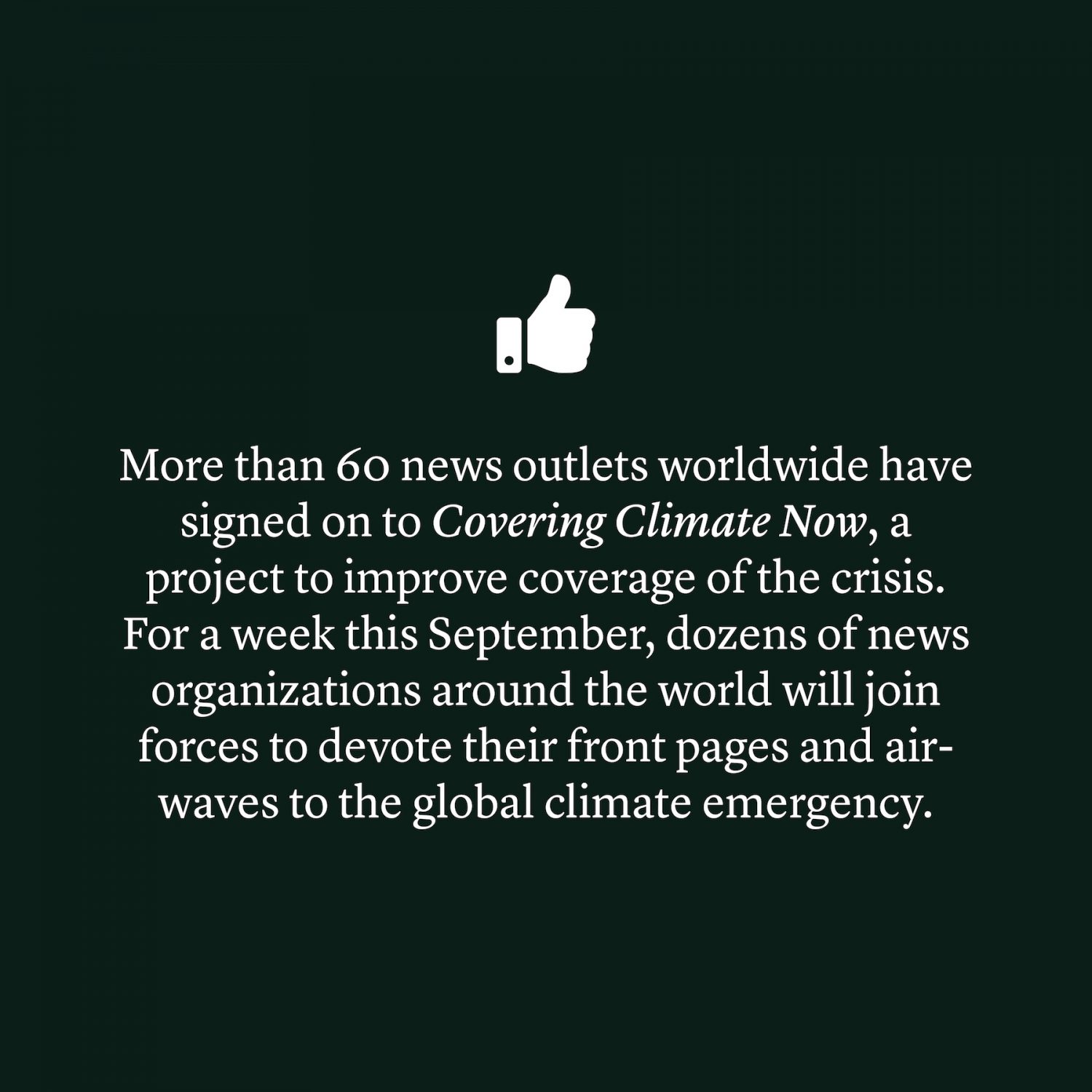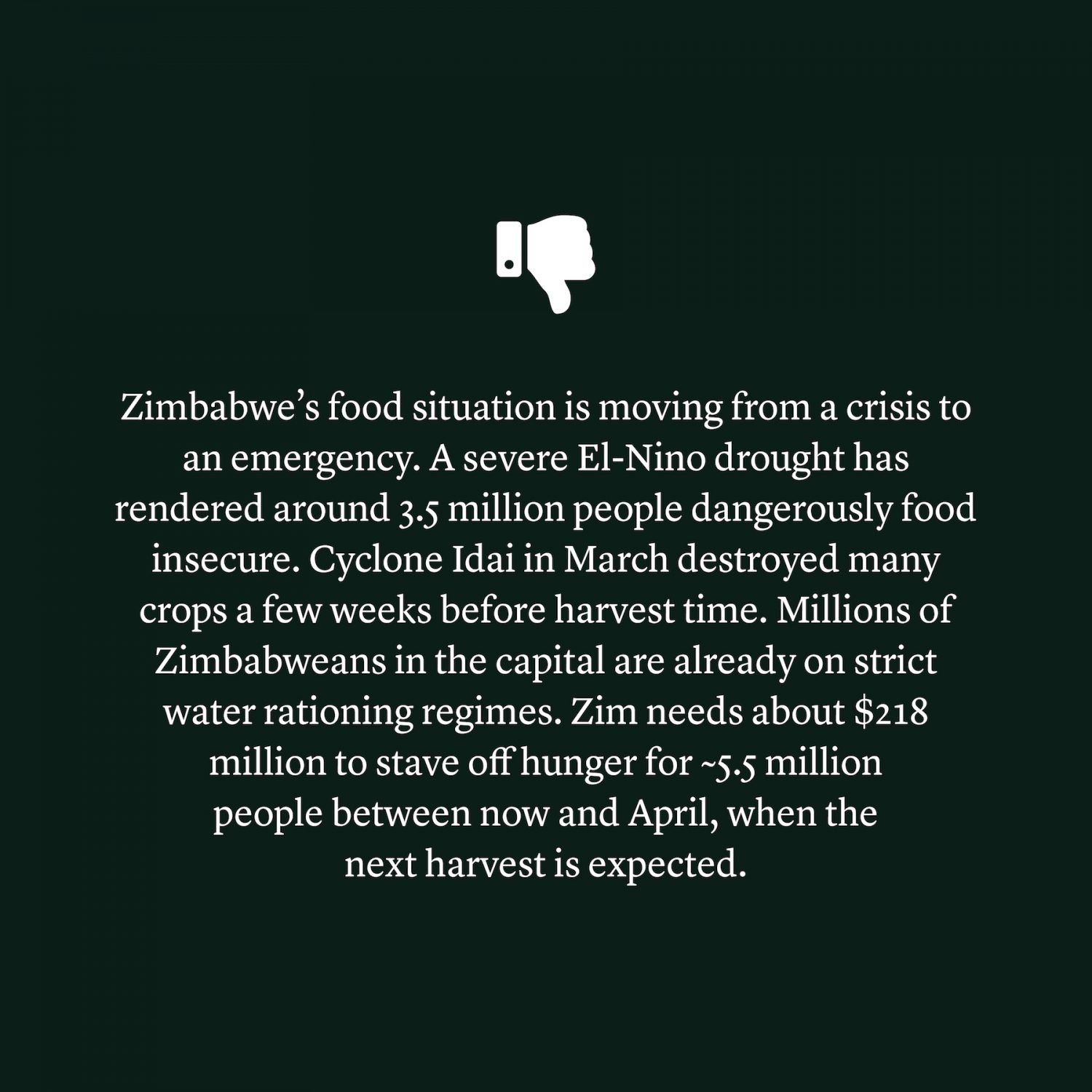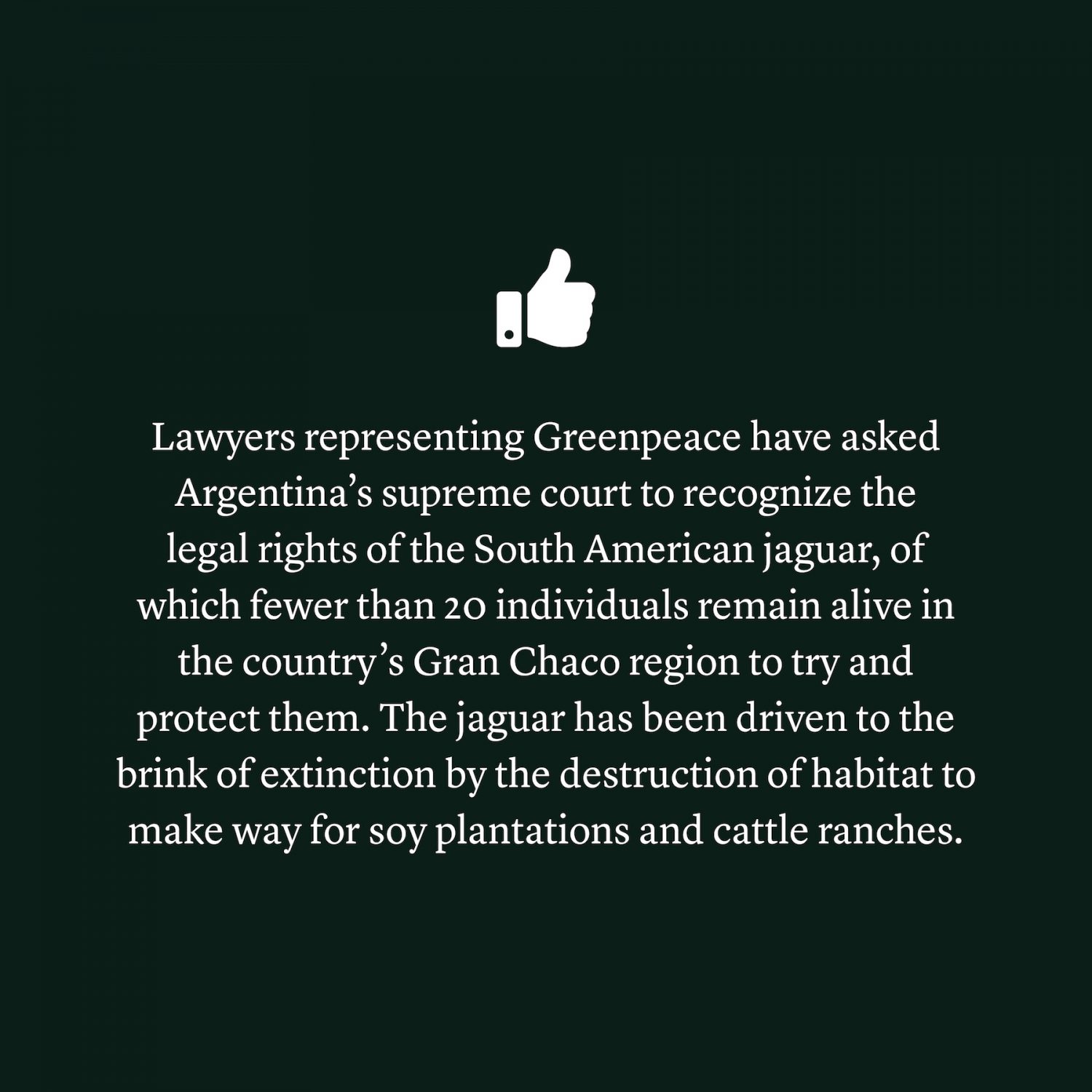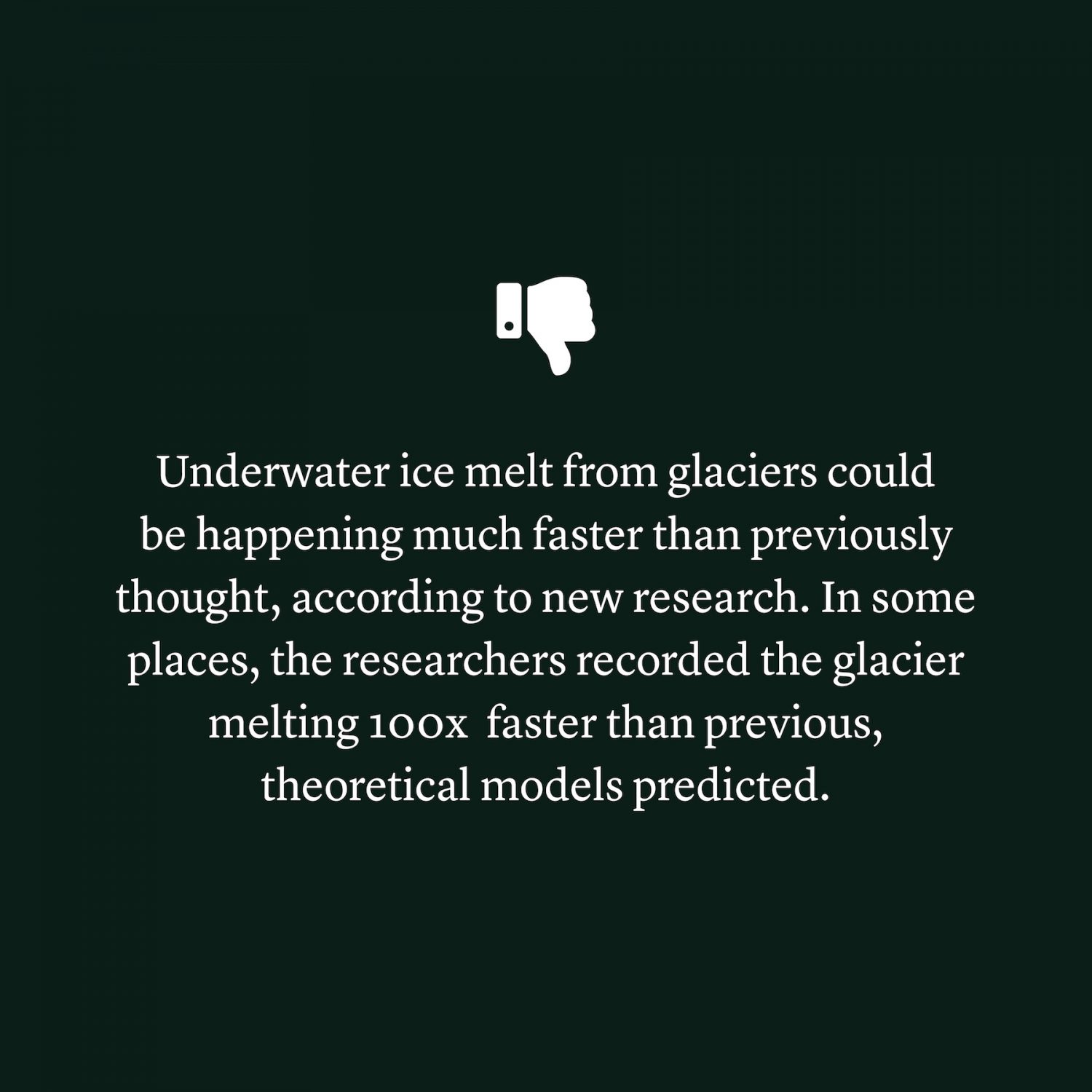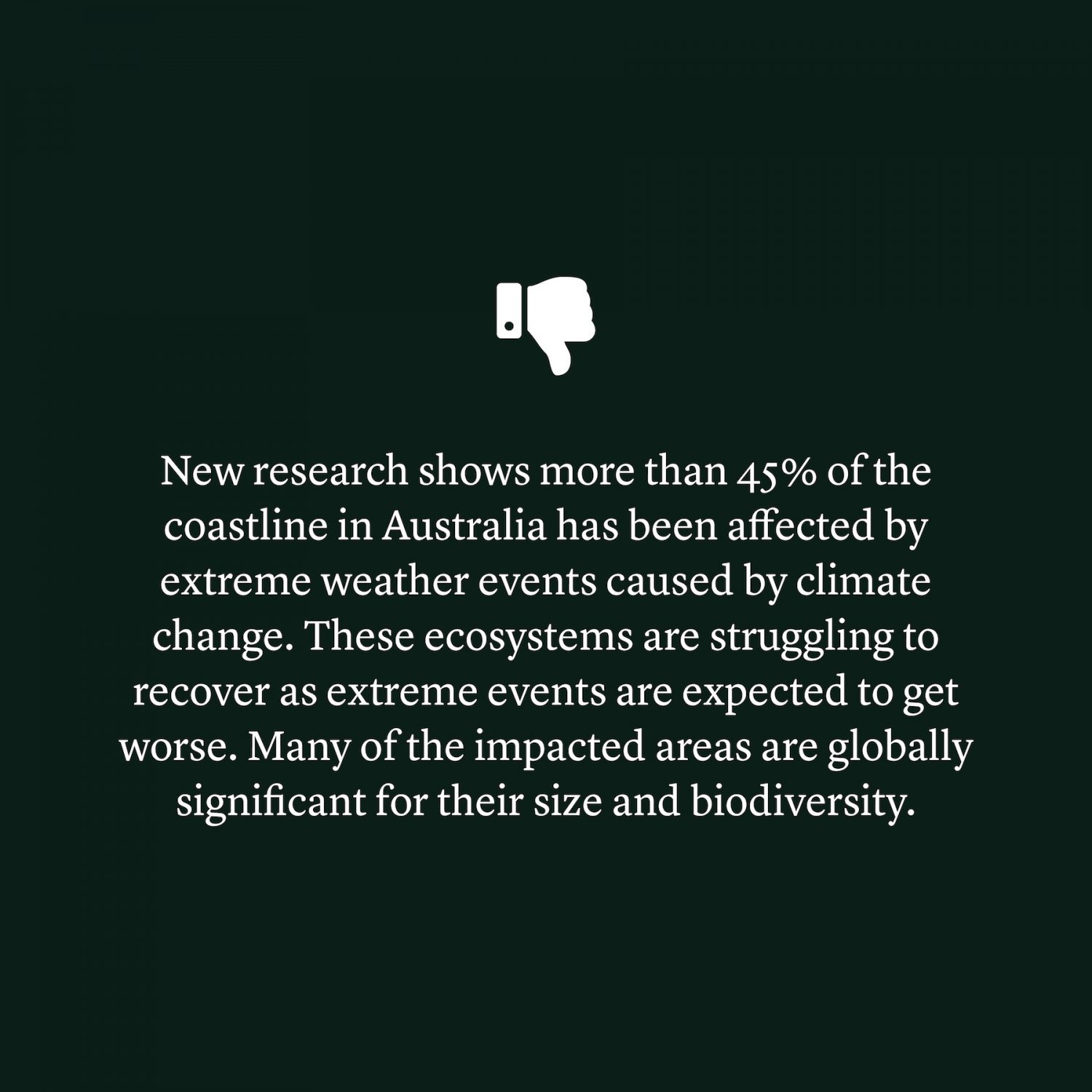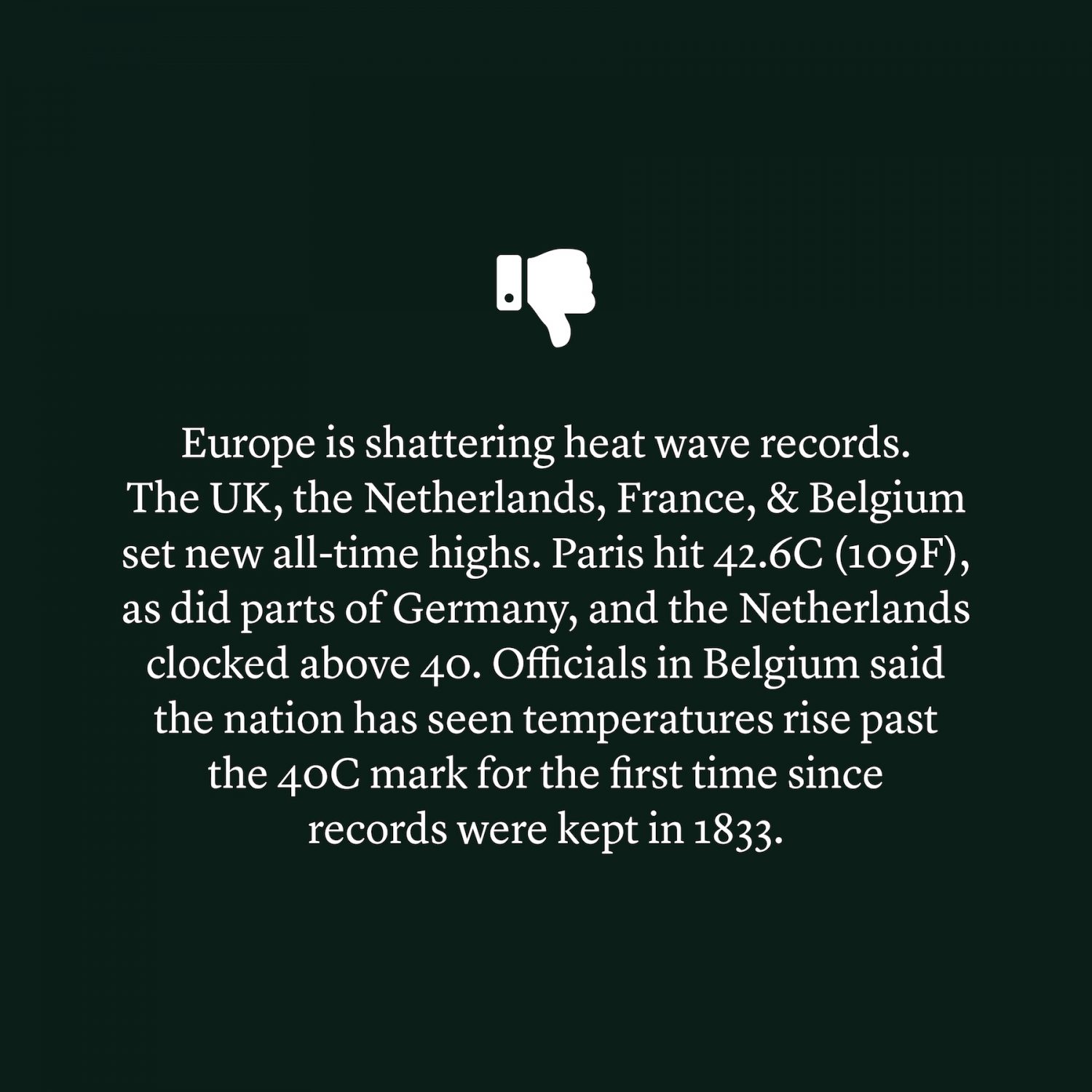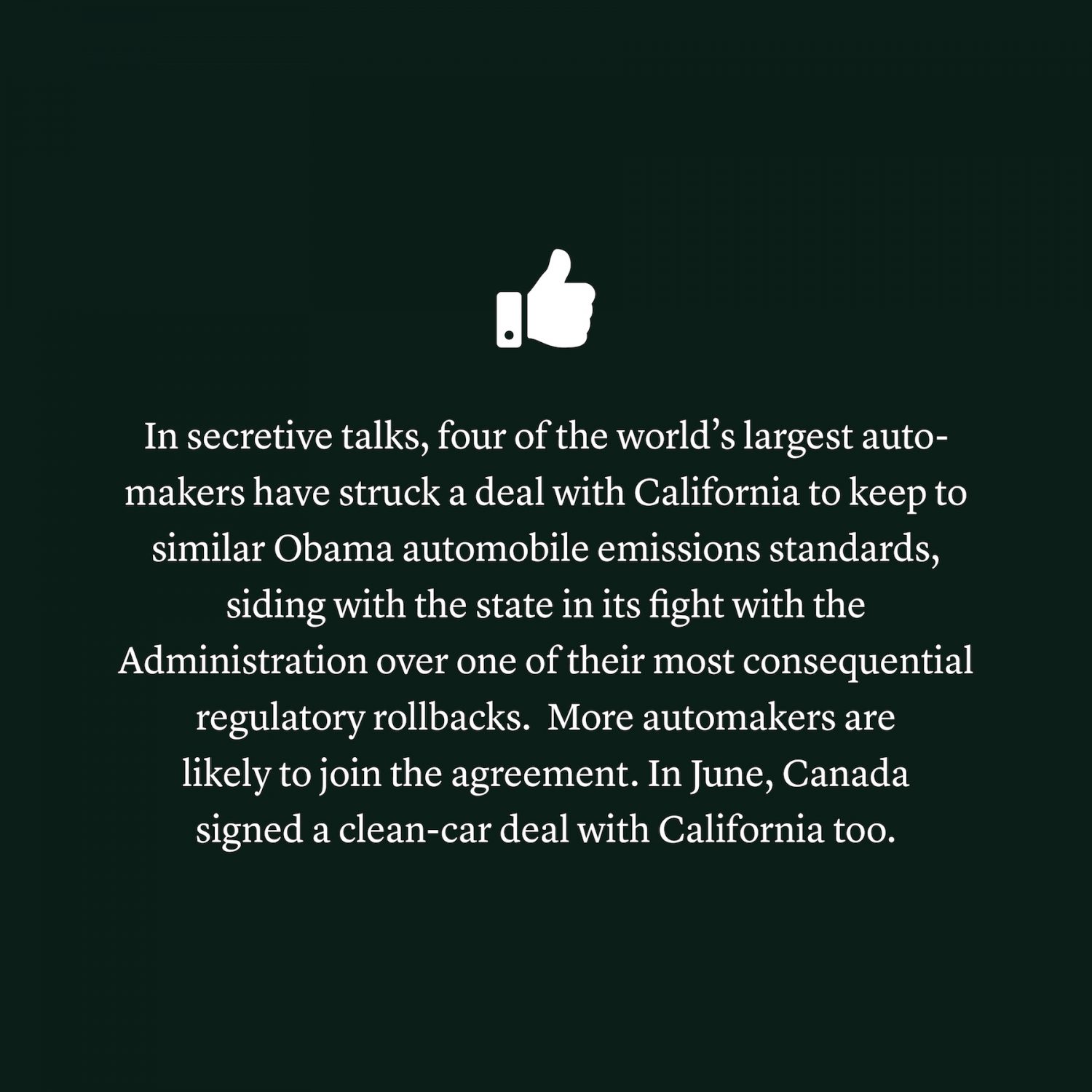Europe / Climate Change
1/ Europe is shattering heat wave records. The United Kingdom, the Netherlands, France, and Belgium set new all-time temperature highs. Paris hit 42.6 degrees Celsius, as did parts of Germany, and the Netherlands moved over the 40 degree needle for the first time. Officials in Belgium said the nation has seen temperatures rise past the 40C mark for the first time since records were kept in 1833. Air conditioning isn’t common — about 2 percent of German homes are air-conditioned — and most homes and offices are designed to stay warm in European winters. Cyclists in the ongoing Tour de France have even strapped on ice vests to stay cool. (Vox / Independent / BBC)
Asia / Environment
2/ Asia and the Pacific are on course to miss all of the 17 Goals of the UN’s 2030 Agenda for Sustainable Development. The Sustainable Development Goals Progress Report shows that, when it comes to some of the Goals, the region is actually going backwards. These are the goals related to access to clean water and sanitation (Goal 6), decent work and economic growth (Goal 8), and responsible consumption and production (Goal 11). (UN / Report)
Zimbabwe / Climate Change
3/ A severe El-Nino drought has rendered more than a third of rural households in Zimbabwe – or around 3.5 million people – dangerously food insecure, the UN World Food Programme (WFP) revealed. In addition, Cyclone Idai in March destroyed many crops a few weeks before harvest time. Millions of Zimbabweans in the capital are already on strict water rationing regimes. Zimbabwe needs about $218 million to stave off hunger for about 5.5 million people between now and April 2020, when the next harvest is expected. That’s assuming there will be enough rain. (UN / VOA)
Russia / Animals
4/ Large areas of central and southern Russia have seen a major decline in their bee populations in recent months. Declining bee populations have caused widespread alarm in Europe, with experts blaming the crisis on a combination of factors: climate change, pesticides – notably neonicotinoids – and varroa mites spreading in beehives. In April 2018 the EU imposed an almost total ban on neonicotinoids because of the harm they do to bees and other pollinators. Beekeepers in France raised the alarm again in June this year, reporting many severely hit bee colonies. (BBC)
World / Climate Change
5/ Five countries that border the Arctic Ocean are claiming rights to large, overlapping sections of the seafloor. Three say the North Pole is theirs. The vanishing ice sheet opens the top of the world to shipping, fishing, and oil and gas drilling, making it strategically important for the countries that surround it. Meanwhile, the Arctic is on fire. The volume of Arctic sea ice, both in thickness and extent, has decreased 50 to 70 percent (our note: depending on the studies/research) since the late 1970s. In May, US Secretary of State Mike Pompeo said “This is America’s moment to stand up as an Arctic nation and for the Arctic’s future,” he declared. “The Arctic is at the forefront of opportunity and abundance.” (Scientific American / SA2 / Vice / Gov / Forbes / Independent)
Australia / Climate Change
6/ New research shows more than 45% of the coastline in Australia has been affected by extreme weather events caused by climate change. These ecosystems are struggling to recover as extreme events are expected to get worse. Many of the impacted areas are globally significant for their size and biodiversity, and because until now they have been relatively undisturbed by climate change. Some of the areas affected are also World Heritage Areas. (The Conversation)
World / Climate Change
7/ Underwater ice melt from glaciers could be happening much faster than previously thought, according to new research. In some places, the researchers recorded the glacier melting 100 times faster than previous, theoretical models predicted. The scientists who worked on the study developed new methods incorporating sonar, time-lapse photography and other tools to monitor how much ice is melting beneath the water surface. This latest study adds to research that suggests assumptions about underwater melting at glaciers need to be revisited – because of the alarming effects of the phenomenon on rising sea levels. (Time / Independent / Journal)
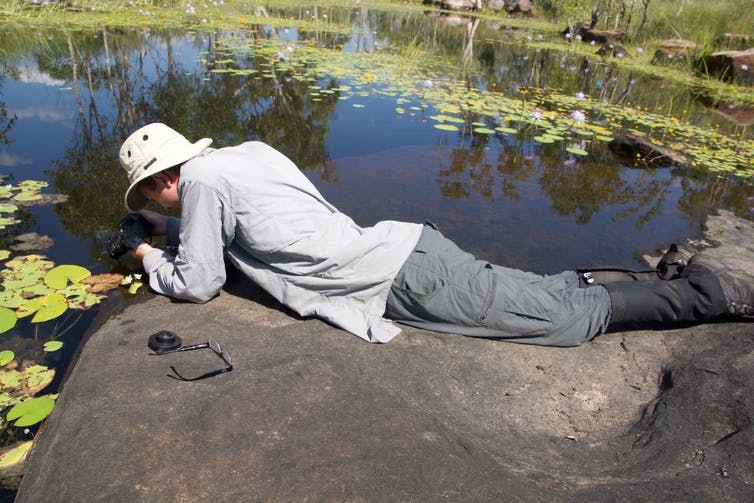
Adam (Research Fellow), found a new population of the carnivorous Aldrovanda vesiculosa, the waterwheel plant. The waterwheel plant must be among the most fascinating plants in the world. Its genus dates back 50 million years. The waterwheel plant is sensitive, and is often the first species to disappear when these habitats become degraded. Three-quarters of these are in the exclusion zone surrounding the Chernobyl nuclear disaster site. (The Conversation)
The good news…
Argentina / Animals
8/ Lawyers representing Greenpeace have asked Argentina’s supreme court to recognize the legal rights of the South American jaguar, of which fewer than 20 individuals remain alive in the country’s Gran Chaco region. In Argentina, the speckled feline has been driven to the brink of extinction by the destruction of habitat to make way for soy plantations and cattle ranches. One recent study estimates that habitat loss will cause the extinction of 50% of birds and 30% of mammals in the Gran Chaco within 10-25 years. (The Guardian)
America / Climate Change
9/ New York just passed the most ambitious climate target in the country, signing it into law. Carbon-free electricity by 2040 and a net-zero carbon economy by 2050. It calls for all the state’s electricity to come from renewable, carbon-free sources such as solar, wind and hydropower. Transportation and building heating systems would also run on clean electricity rather than oil and gas. Now comes time to practically implement it. (LA Times / Vox)
World / Climate Change
1o/ More than 60 news outlets worldwide have signed on to Covering Climate Now, a project to improve coverage of the emergency. For a week this September, dozens of news organizations around the world will join forces to devote their front pages and airwaves to the global climate emergency. This unique media collaboration, timed to coincide with landmark UN Climate Action Summit in New York, is the first initiative of Covering Climate Now, a project co-founded by The Nation and the Columbia Journalism Review, in partnership with The Guardian. The point is to give the climate story the attention and prominence that scientists have long said it demands. (CJR / The Guardian)
America / Climate Change
11/ Four of the world’s largest automakers have struck a deal with California to keep to similar Obama automobile emissions standards, siding with the state in its fight with President Trump over one of his most consequential regulatory rollbacks to eliminate an Obama-era regulation designed to reduce vehicle emissions that contribute to global warming. With car companies facing the prospect of having to build two separate lineups of vehicles, they opened secretive talks with California regulators in which the automakers — Ford, Volkswagen, Honda and BMW — won rules that are slightly less restrictive than the Obama standards and that they can apply to vehicles sold nationwide. More automakers are likely to join the agreement. In June, Canada, which has historically followed the United States’ federal auto pollution rules, signed a clean-car deal with California in what was seen as a step toward formally adopting the state’s standards. (NYT)
World / Climate Change
12/ International lawmakers should adopt a fifth Geneva convention that recognizes damage to nature alongside other war crimes, according to an open letter by 24 prominent scientists. The legal instrument should incorporate wildlife safeguards in conflict regions. This would not only help safeguard threatened species, but would also support rural communities, both during and post-conflict, whose livelihoods are long-term casualties of environmental destruction. (The Guardian)
Other notables…
- The number of critically-endangered orangutans living in the eastern lowlands of Malaysia’s Sabah state declined by as much as 30 percent between 2002 and 2017, even as the overall population across the state remained relatively stable. The findings underlined the need for a comprehensive conservation strategy since orangutans use plantations to travel between larger forested areas. (Aljazeera)
- The Trump campaign is selling plastic straws. No they’re not recyclable. Yes it is ridiculous. It’s definitely not the worst thing he’s done, not even this week by far. But we wrote about it on the ‘gram if you’d like to know more. It’s symbolic for his lack of utter care for the environment and his despise of those who work to protect it. (BBC / Vanity Fair / Our Instagram Post)
- The Sea Pangolin is the first marine species to be assessed as officially endangered due to the potential threat of deep sea mining. (The Conversation)
- Restoring peat moors degraded by farming may prove a relatively inexpensive way of tackling climate change, a report shows. Wet peat bogs store carbon that’s been sucked from the air by plants, but many bogs have been drained for farming. As drained peat dries, CO2 is produced. “It’s pretty clear peat is a sizeable emissions source and if we want to achieve Net Zero carbon emissions (in the UK) we will have to address it.” (BBC)
- CNN said Thursday it would host a US Democratic presidential town hall focused largely on climate change in September amid calls from several candidates that the issue be given far more airtime. MSNBC is also planning a multi-day, climate-only event in partnership with Georgetown University. (Huffington Post)
- South32 wants to expand the life of the Dendrobium coal mine — one of its two remaining sites near Wollongong in NSW — in the hope of producing 78 million tonnes of metallurgical coal over the next 30 years. South32’s mine is located under the Sydney water catchment between the Avon and Cordeaux Dams, and environmental groups warned the proposed expansion poses too great a risk to the area’s water supply. If approved, it would add 100 jobs to the existing workforce. (ABC)
- Rock core samples from a period of warming millions of years ago indicate soils contributed to a rapid rise in atmospheric greenhouse gas and suggest modern climate models may overestimate Earth’s ability to mitigate future warming, according to an international team of scientists. (EurekAlert)
- The majority of YouTube videos about the climate crisis oppose the scientific consensus and “hijack” technical terms to make them appear credible, a new study has found. Chemtrails, climate engineering, climate hacking, climate manipulation, climate modification and geoengineering had very few videos explaining the scientific rationale behind their ideas. (The Guardian)
- More than £1bn of food destined for UK supermarkets is thrown away or fed to animals before it leaves farms every year, according to a study highlighting the scale of the country’s waste problem. (The Guardian)
- The scientific consensus that humans are causing global warming is likely to have passed 99%, according to the lead author of the most authoritative study on the subject, and could rise further after separate research that clears up some of the remaining doubts. The global warming caused by humanity since the industrial revolution has been found to be without parallel in the past two thousand years. (The Guardian)
- On Monday London will be officially confirmed as the world’s first National Park City. Saturday kicks off a free, eight-day festival celebrating the city’s outdoor spaces. The NPC idea is that citizens will make cities greener, healthier, and wilder to get more people to spend more time outside. Nearly 15,000 species live in London, including eight species of bats, the largest population of stag beetles in England, and hundreds of bird species. There are almost as many trees in London as people and nearly half of its urban areas are either green or blue space. (National Geographic)
- Worst floods in years ‘submerge’ Bangladesh villages. More than 4 million people are at risk of food insecurity and disease. The low-lying country is the latest left reeling by the annual monsoon rains, which have wreaked havoc across South Asia from Nepal in the Himalayas to Sri Lanka. “The monsoons really are changing. They’re becoming much more unpredictable and much more dangerous.” (Reuters / ReliefWeb / Aljazeera)
The British government has spent £680m of its foreign aid budget on fossil fuel extraction abroad since 2010, despite signing up to international agreements to cut greenhouse gas emissions and claiming to be a leader on tackling climate change, campaigners say. Nearly a quarter of aid spending on energy goes on fossil fuel projects, according to analysis commissioned by aid agency Cafod carried out by the Overseas Development Institute. In the two years following the 2015 Paris agreement more money was pumped into oil and gas projects than in the previous five years, the research found. (Independent)

